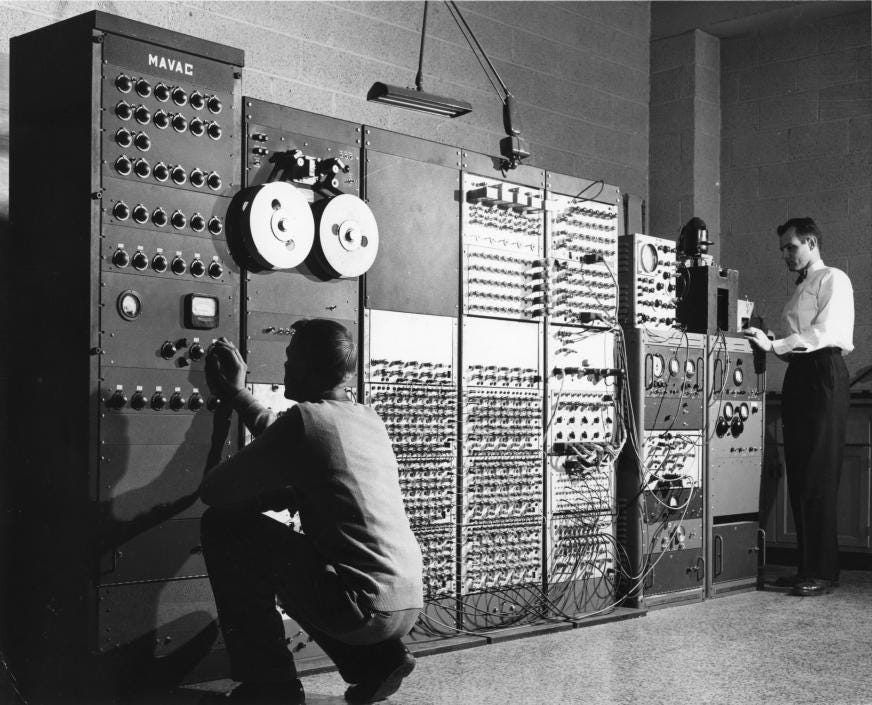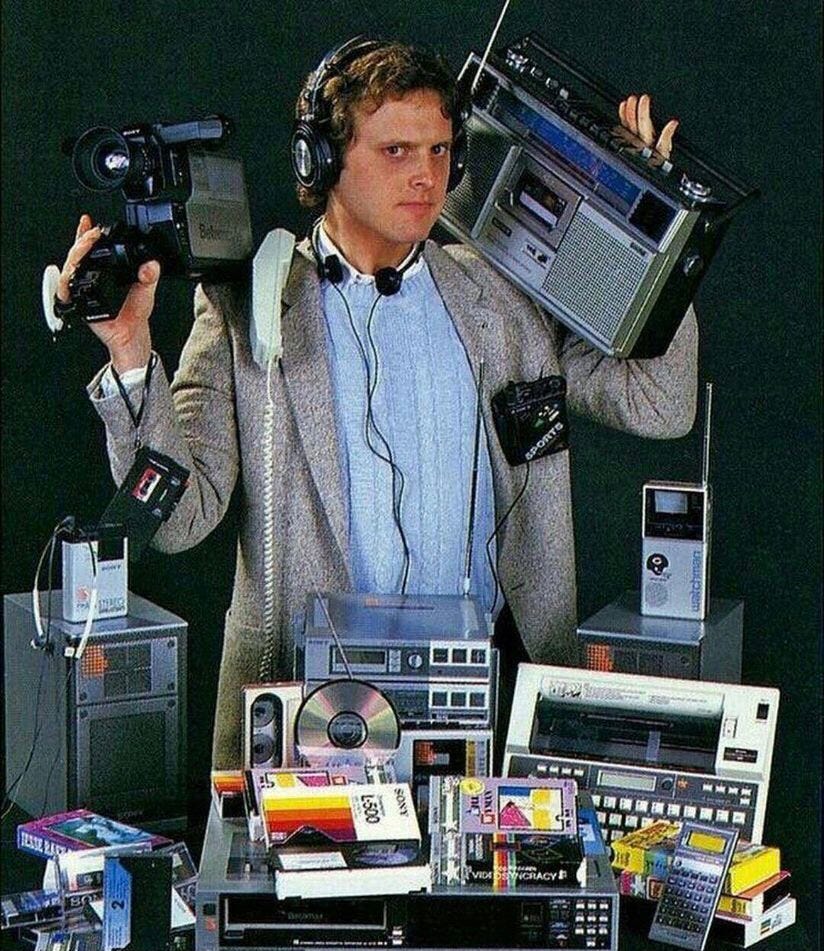VOL 32: TECHNOLOGICAL INVENTIONS OF THE 19TH CENTURY-2
Computers 🖥 and Telephone ☎️
Hey Friends 🤓,
Trust you all had a great week 🤗?
Today at a Glance:
QuoteWhat is Technology?Important InventionsFace of the WeekBusiness & StartupsRandom FactsTweet of the Week
Quote of The Week
“Know yourself and you will win all battles.”
-Sun Tzu, The Art of War
The First of this series can be found here 👇🏽
VOL 31: TECHNOLOGICAL INVENTIONS OF THE 19TH CENTURY
What is Technology?
Let me start today by defining the term Technology;
Dictionary says it is the science or knowledge put into practical use to solve problems or invent useful tools.
Simplifying it;
I’ll say Technology are things created by humans that can make our lives easier and solve problems.
An ink pen is a Technology.A table & a chair is a Technology.A microphone 🎤 is a Technology.An Umbrella ☔ is a Technology.We have misplaced the concept today because we only refer to anything relating to computers or programming as Tech. Although it’s the predominant technology today, we should not forget the basic concept of technology itself.
COMPUTERS (1824)
One of history's most significant inventions (for now). Although computers can be traced back to 500 BC in ancient Babylon. The Abacus, which was initially used for arithmetic tasks. Charles Babbage is widely regarded as the "Father of Computer" because he invented the programmable computer.
Historically, the term "computer" was first used in 1613 by Richard Braithwaite in his book titled; “The Yong Mans Gleanings.” He used the word “Computer” to describe a human who performed calculations or computations. The definition of a computer remained the same until the end of the 19th century when the industrial revolution gave rise to mechanical machines whose primary purpose was calculating.
People who were regarded as computers then were hired to do never-ending calculations with only their brains and primitive tools, but human computers were prone to errors that could have disastrous consequences.
This problem led Charles Babbage to convince himself that he could invent a machine that would perform all of these tasks automatically. But at the time, manufacturing technology was still primitive, so the invention only existed on paper, and it took another 100 years for it to be realized by Alan Turing, so Charles Babbage never live to witness his invention.
It’s hard to credit the invention of this technology to an individual, there are many scientists who contributed to the success of this technology, people like Ada Lovelace, Konrad Zuse, Alan Turing, John Mauchly, Presper Eckert, Judge Larson, Doug Engelbart, Steve Wozniak & Steve Jobs.
All influenced and inspired by each other through series of incremental steps even till today as we the new generations pursue the realms of computing and its vast possibilities.
Human computers could only perform one calculation per second; modern supercomputers can perform trillions of calculations such as modelling weather systems, simulating nuclear explosions, designing aircraft, and so on, and thankfully, these computers do not make mistakes.
TELEPHONE (1876)
It’s normal for us today, but wait, imagine what the first telephone call would have looked like, both parties hearing and talking to each other without seeing, that would have been magic!!
This ever-evolving technology has thoroughly changed the way we communicate and have also altered the way we live. The first call is said to have been made when Bell called his assistant “Mr. Watson, come here. I want to see you.” to confirm that the invention worked.
However, there are disputes about who invented the technology first, the contest was between Elisha Gray and Alexander Graham Bell. Bell won anyways and he is widely regarded as the inventor of the technology by patenting it just hours before Elisha Gray patent his device.
You can’t talk of the phone technology without mentioning the telegraph which had been a highly successful communication system for about 30 years before Bell began experimenting. Bell's attempts to improve the telegraph made him find success with the telephone.
The technology that began with simply finding a way to transmit voices is now becoming more advanced and is being used less and less for the actual transmission of voices, the original problem that so many great minds attempted to solve 150 years ago.
P.S: I can’t complete it in a single article, the last part will be released next week.
FACE OF THE WEEK
NICOLAUS COPERNICUS (1473 - 1543)
He was a Renaissance polymath, a mathematician, polyglot, astronomer, and a Catholic who formulated a model of the universe that placed the Sun rather than Earth at its centre and is widely regarded as the father of astronomy.
Before Copernicus, everyone believed the earth was the centre of the universe, his heliocentric idea in the 1500s proved them wrong. He simply showed that the earth revolved around the sun which helps in simplifying our knowledge and understanding of the universe.
He worked to prove his idea that the time it takes for a planet to orbit the sun depends on its distance from the sun. Meaning, the farther a planet is from the sun, the longer it takes to go around the sun. It was a revolutionary idea at the time.
To make sure his idea was more widely accepted, he published these 7 axioms which i'll be sharing few;
The earth goes around the sun.The sun is at the centre of the universe, and all celestial bodies rotate around it.The stars are more farther away than the sun is from the earth.Stars do not move, and if they appear to, it is only because the Earth itself is moving.Earth moves in a sphere around the Sun, causing the Sun's perceived yearly movement.
These axioms provide the basics for modern astronomy. His theories were rejected by scholars of his time and were banned from the catholic church after his death and were not allowed to be read for close to three centuries.
He spent his final years defending his work. Copernicus never married and is not known to have had children. He revolutionized astronomy and changed the way we think about everything in our universe.
Business & Startups
Talemia is a Nigerian startup that is making it easier and faster for African founders to launch profitable startups.
They simplify the learning process so that execution becomes easier. Helping early-stage startups cut out so many technical jargons and focus on ‘’practical execution’’.
Talemia is working on building Africa’s largest portfolio of profitable companies.
Company's website: www.talemia.com
Random Facts
The word "dinosaur" is coined by Richard Owen in 1845.
Tweet of The Week

Enjoyed this piece? Please let me know by hitting the ❤ button. It brightens my day to see if my readers enjoy the content (it really does!). Thank you so much!
Enjoy your weekend.







